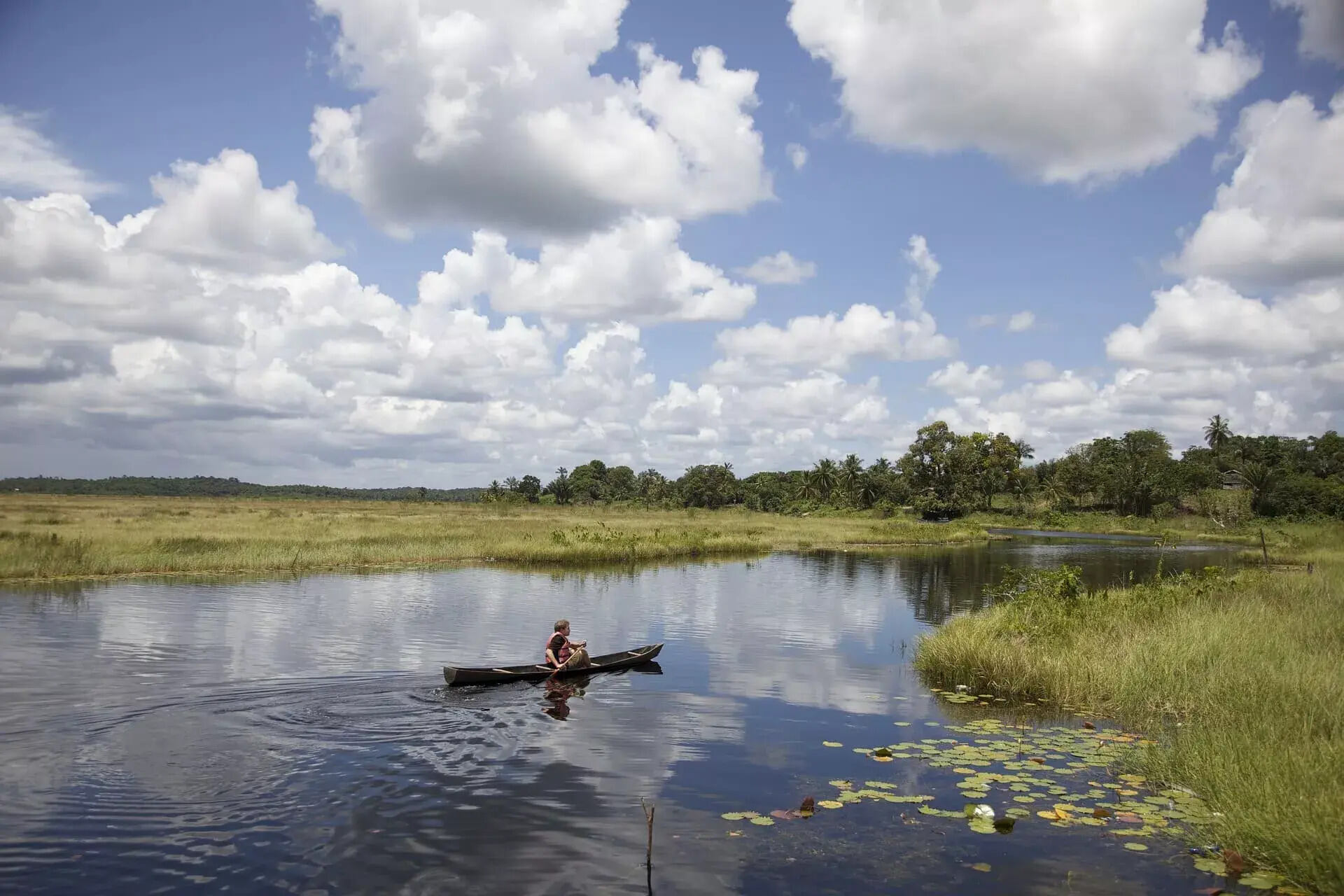
Guyana, a small South American country, often flies under the radar. Yet, it holds a treasure trove of fascinating facts. Did you know that Guyana is the only English-speaking country in South America? This unique feature sets it apart from its Spanish and Portuguese-speaking neighbors. Rich in biodiversity, Guyana boasts lush rainforests, savannas, and stunning waterfalls, including the breathtaking Kaieteur Falls, which is one of the world's tallest single-drop waterfalls. Culturally diverse, the population reflects a blend of African, Indian, Amerindian, and European heritage. This mix influences everything from food to festivals. Economically, Guyana is on the rise, thanks to recent oil discoveries. Whether you're interested in nature, culture, or economics, Guyana offers something intriguing for everyone.
Key Takeaways:
- Guyana, the only English-speaking country in South America, is home to the powerful Kaieteur Falls and diverse wildlife. Its rich cultural blend and booming economy make it a fascinating destination for nature lovers and history enthusiasts.
- With vast rainforests, a vibrant mix of ethnicities, and significant contributions from agriculture and mining, Guyana offers a unique blend of natural beauty, cultural diversity, and economic potential.
Guyana's Unique Geography
Guyana, located on the northern coast of South America, boasts a unique blend of natural beauty and cultural diversity. Here are some fascinating facts about this remarkable country.
-
Guyana is the only English-speaking country in South America. This makes it distinct from its Spanish and Portuguese-speaking neighbors.
-
The country is home to the Kaieteur Falls, one of the world's most powerful waterfalls. With a single drop of 741 feet, it is nearly five times the height of Niagara Falls.
-
Guyana's landscape is dominated by vast rainforests. Over 80% of the country is covered by dense, tropical forests teeming with wildlife.
-
The Essequibo River is the longest river in Guyana. Stretching over 1,000 kilometers, it plays a crucial role in the country's ecosystem and economy.
Rich Cultural Heritage
Guyana's culture is a vibrant mix of various ethnicities and traditions. This diversity is reflected in its festivals, cuisine, and daily life.
-
Guyana celebrates Mashramani, a festival marking the country's Republic Day. This colorful event features parades, music, and dancing, showcasing the nation's rich cultural tapestry.
-
The country's population is a blend of Afro-Guyanese, Indo-Guyanese, Amerindian, and European heritage. This mix results in a unique cultural fusion seen in everything from food to music.
-
Cricket is the most popular sport in Guyana. The country has produced several notable cricketers who have represented the West Indies on the international stage.
Biodiversity and Wildlife
Guyana's rainforests and rivers are home to an incredible array of wildlife, making it a paradise for nature enthusiasts.
-
The country is home to the giant river otter, the world's largest otter species. These playful creatures can be found in the rivers and wetlands of Guyana.
-
Guyana boasts a rich birdlife with over 800 species recorded. Birdwatchers flock to the country to spot rare and exotic birds like the harpy eagle and the scarlet macaw.
-
The jaguar, South America's largest big cat, roams Guyana's forests. These elusive predators are a symbol of the country's wild and untamed nature.
Economic Insights
Guyana's economy is diverse, with significant contributions from agriculture, mining, and emerging industries.
-
The country is one of the world's largest producers of bauxite. This mineral is essential for aluminum production, making it a key export for Guyana.
-
Rice and sugar are major agricultural products. These crops not only feed the nation but also contribute significantly to its economy through exports.
-
In recent years, Guyana has discovered vast offshore oil reserves. This discovery has the potential to transform the country's economy and increase its global significance.
Historical Tidbits
Guyana's history is rich with events and influences that have shaped its present-day identity.
-
The country was once a Dutch colony before becoming British Guiana. It gained independence from the United Kingdom in 1966.
-
Georgetown, the capital city, is known for its colonial architecture. Landmarks like St. George's Cathedral and the Georgetown Lighthouse reflect the city's historical heritage.
Guyana's Unique Charm
Guyana's rich history, diverse culture, and stunning landscapes make it a fascinating place. From its dense rainforests to the vibrant festivals, there's always something new to learn. The Kaieteur Falls stands as a testament to nature's power, while the Demerara sugar and El Dorado rum showcase the country's agricultural prowess.
The indigenous communities add depth to Guyana's cultural tapestry, preserving traditions that date back centuries. Georgetown, with its colonial architecture and bustling markets, offers a glimpse into the nation's past and present.
Whether you're intrigued by the wildlife or the culinary delights, Guyana promises a unique experience. Its blend of natural beauty and cultural richness ensures that visitors and locals alike can find something to appreciate. So, next time you think of travel, consider the hidden gem that is Guyana.
Frequently Asked Questions
Was this page helpful?
Our commitment to delivering trustworthy and engaging content is at the heart of what we do. Each fact on our site is contributed by real users like you, bringing a wealth of diverse insights and information. To ensure the highest standards of accuracy and reliability, our dedicated editors meticulously review each submission. This process guarantees that the facts we share are not only fascinating but also credible. Trust in our commitment to quality and authenticity as you explore and learn with us.


